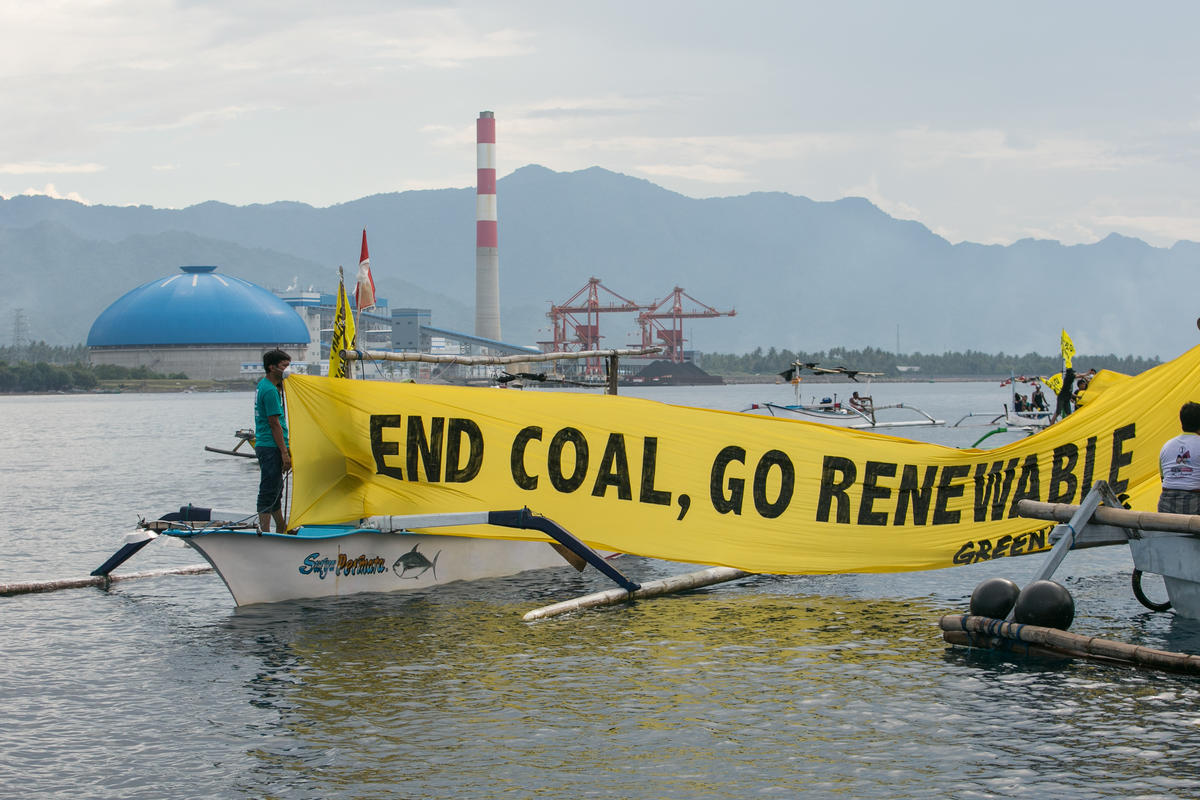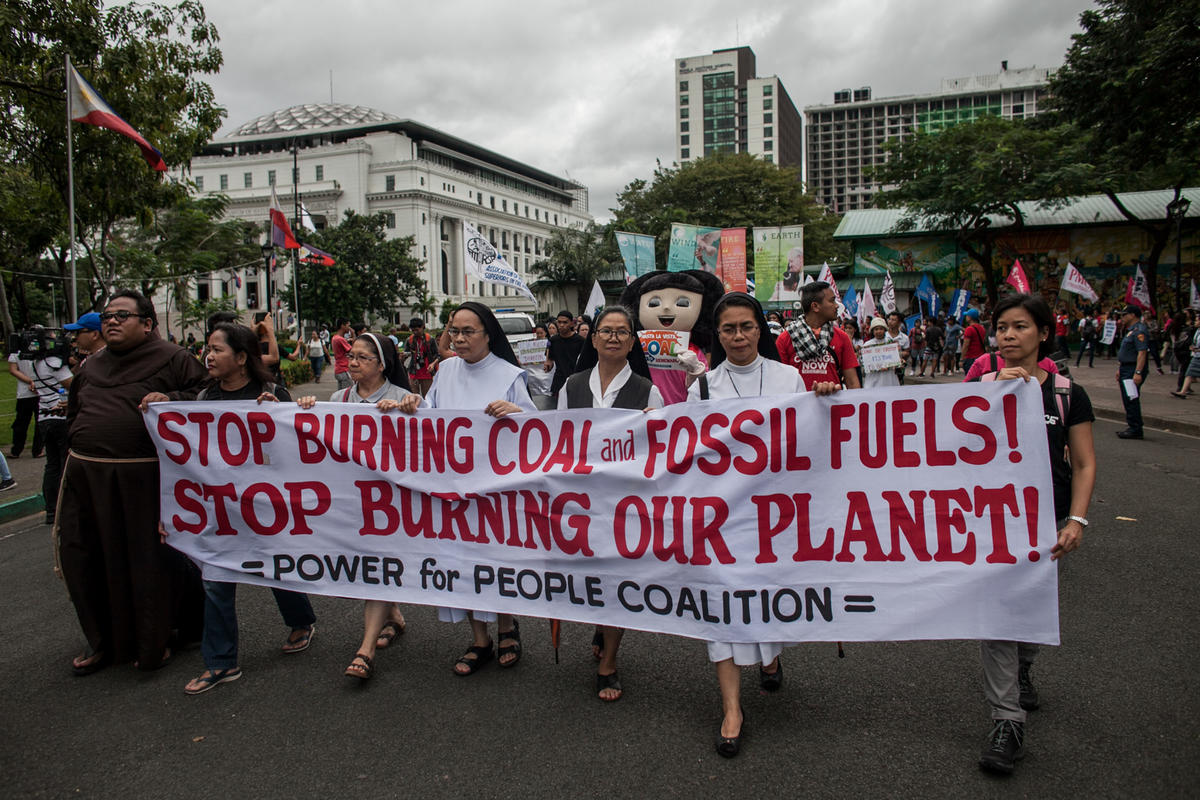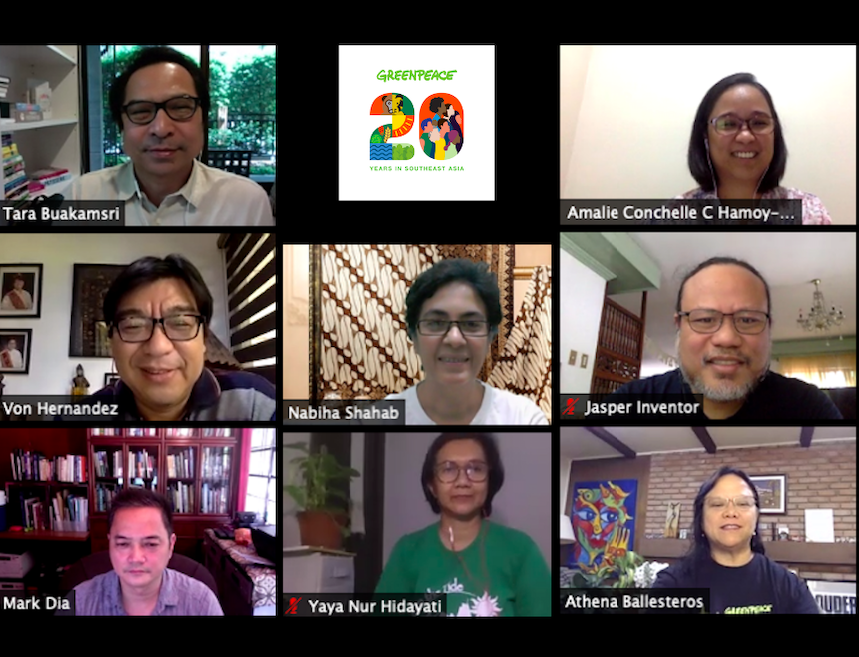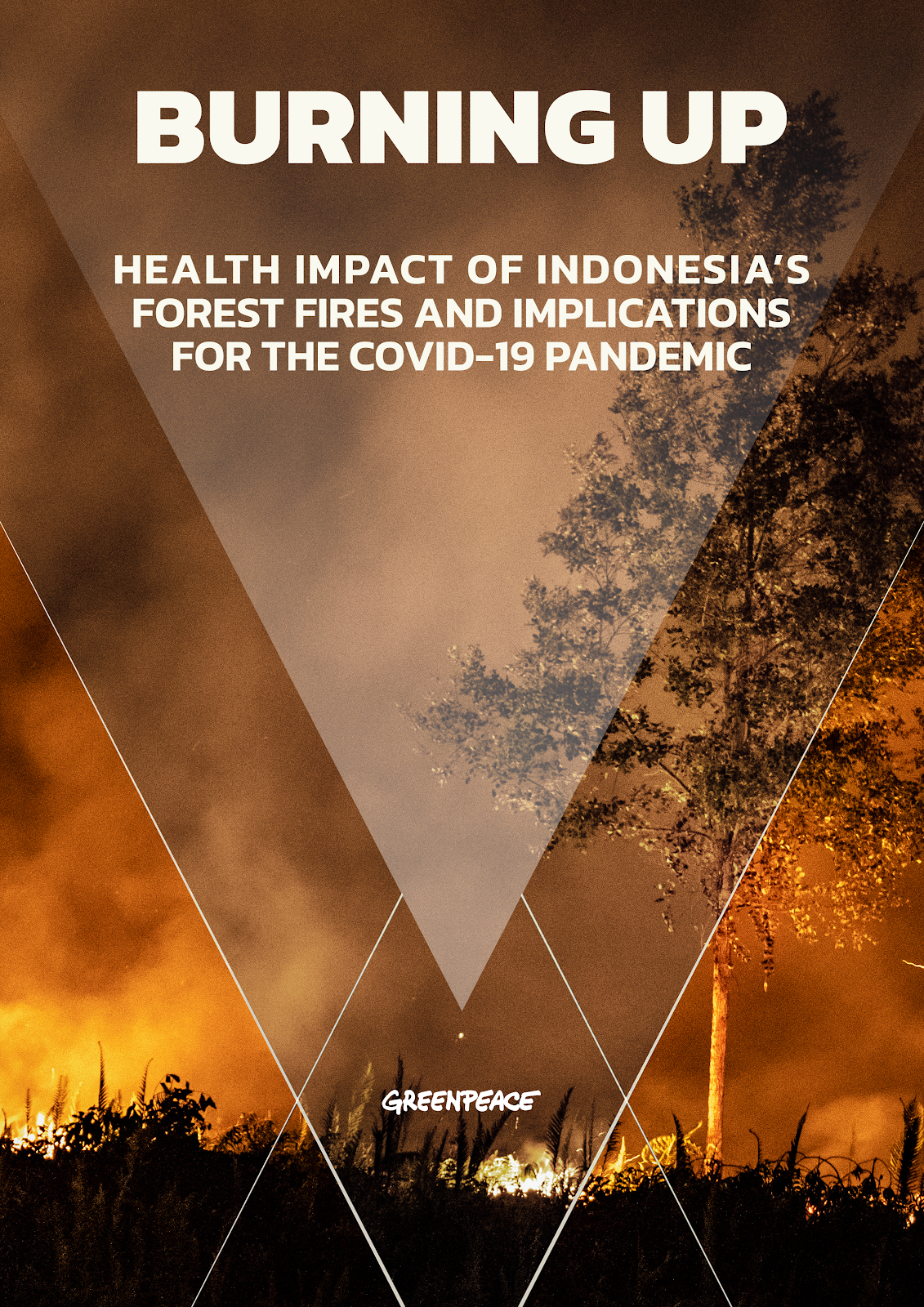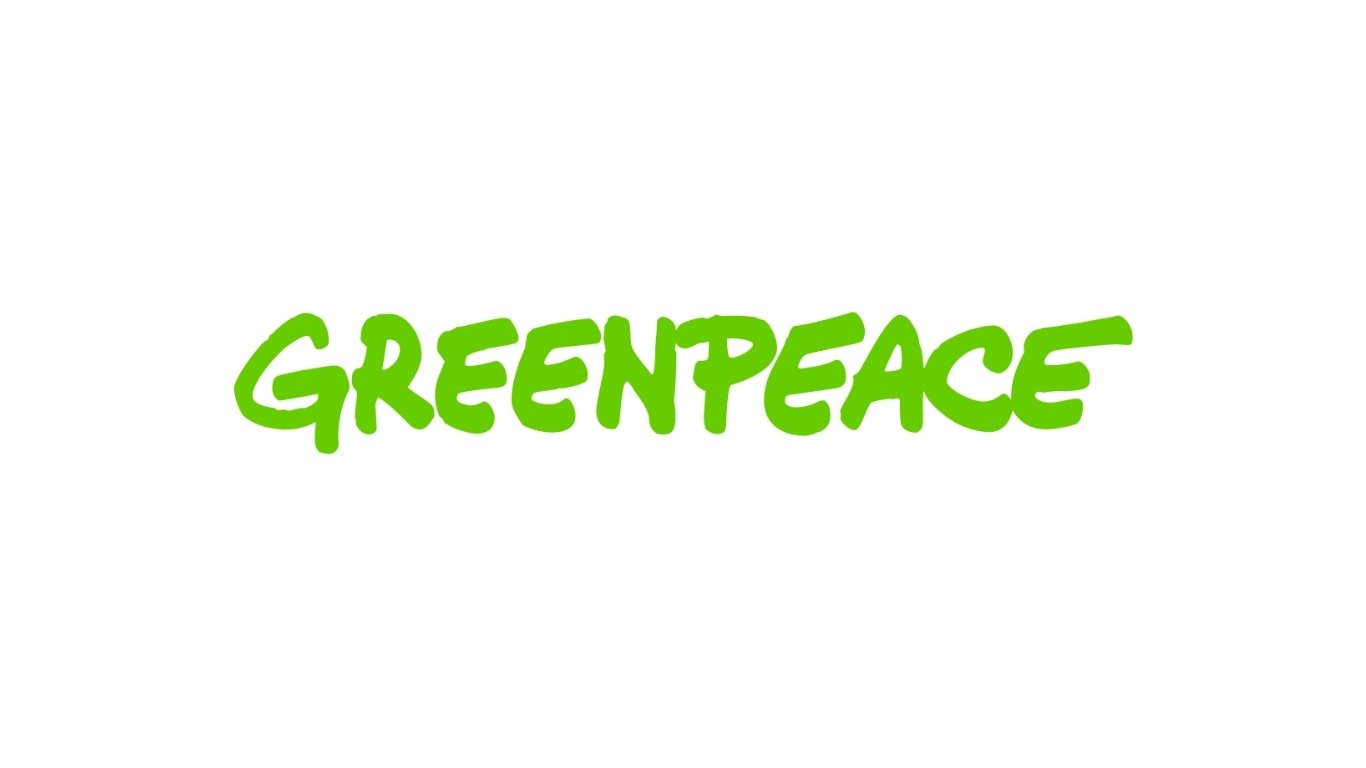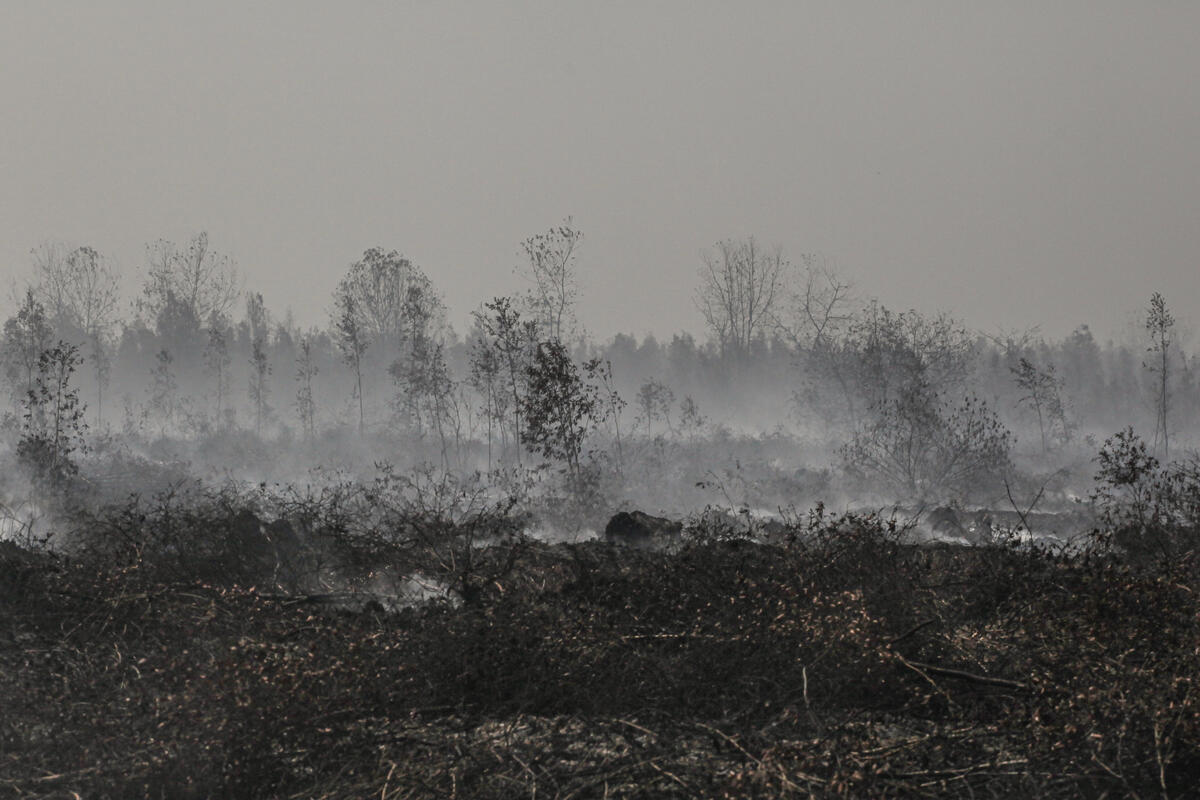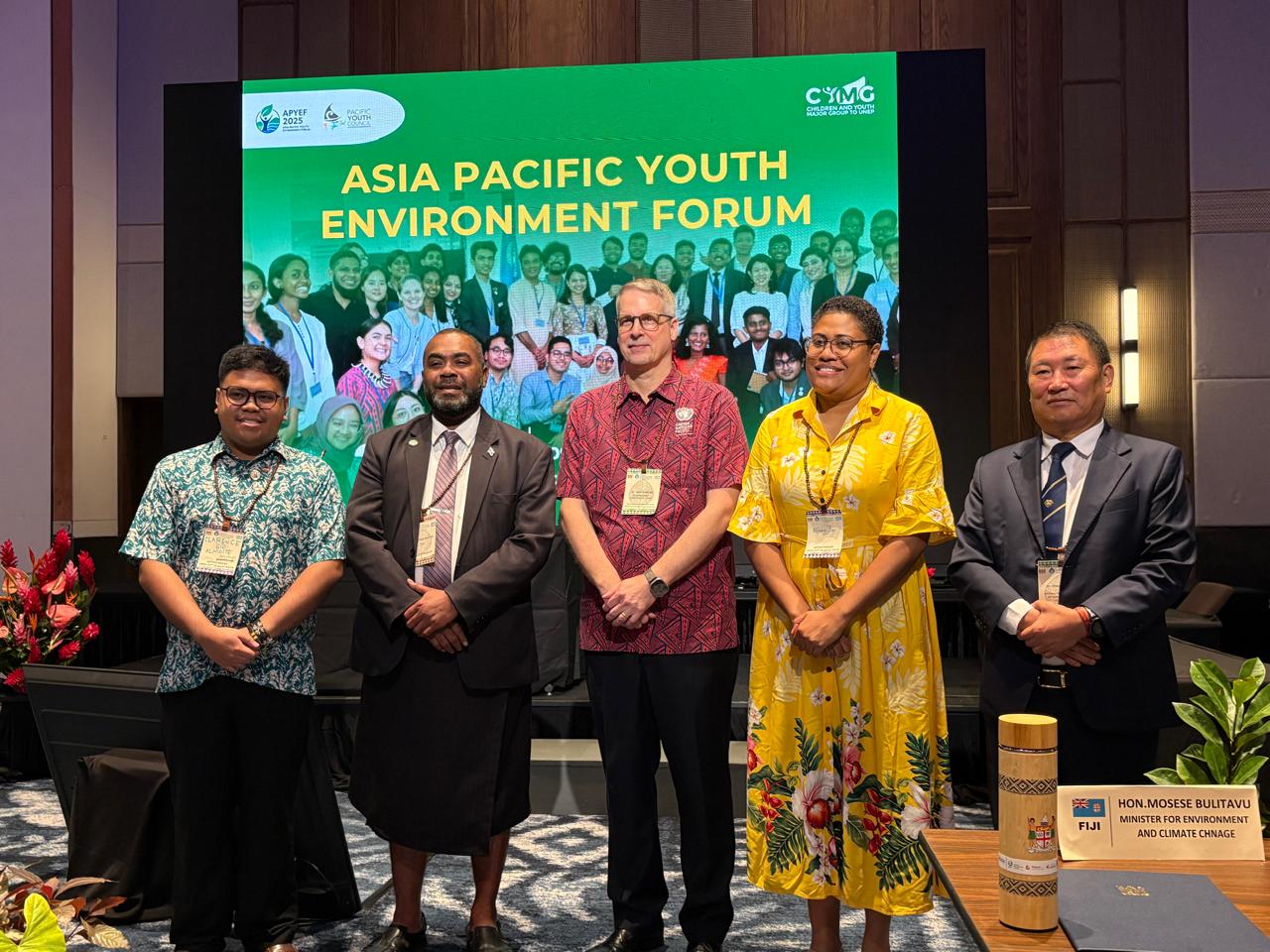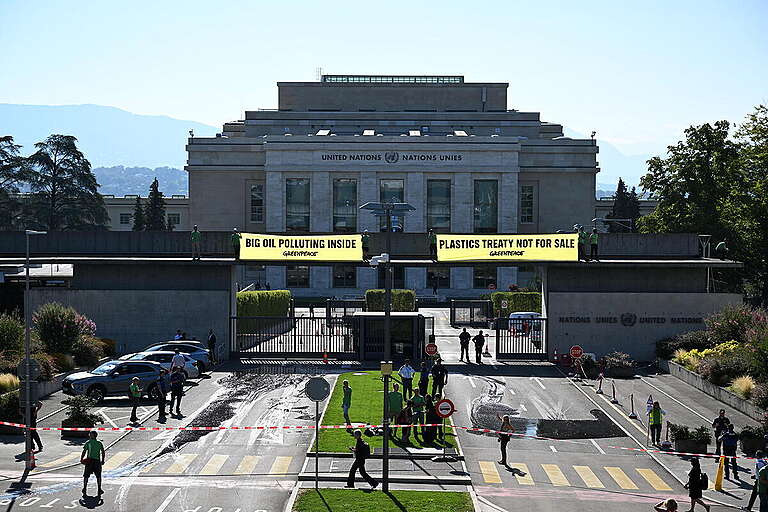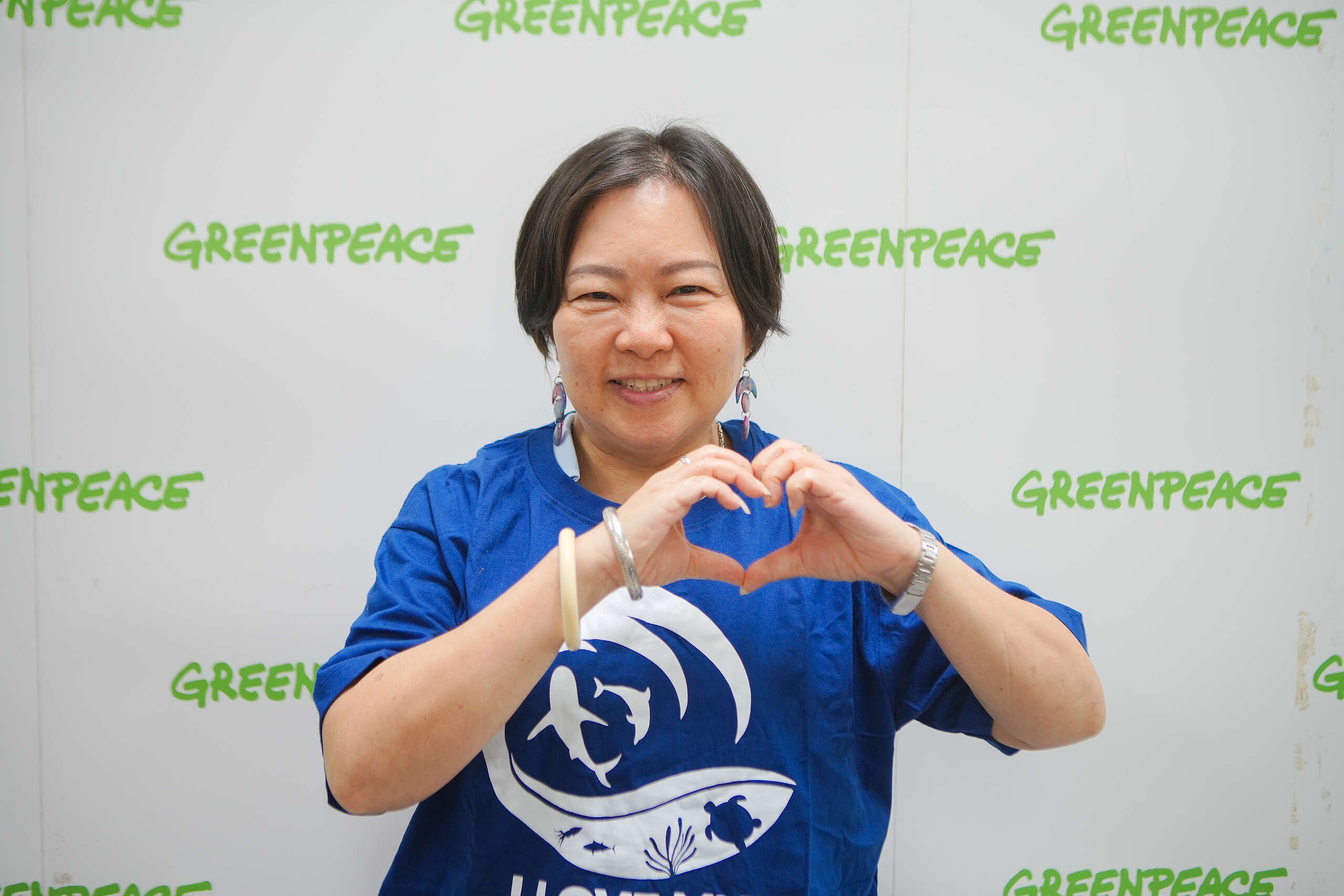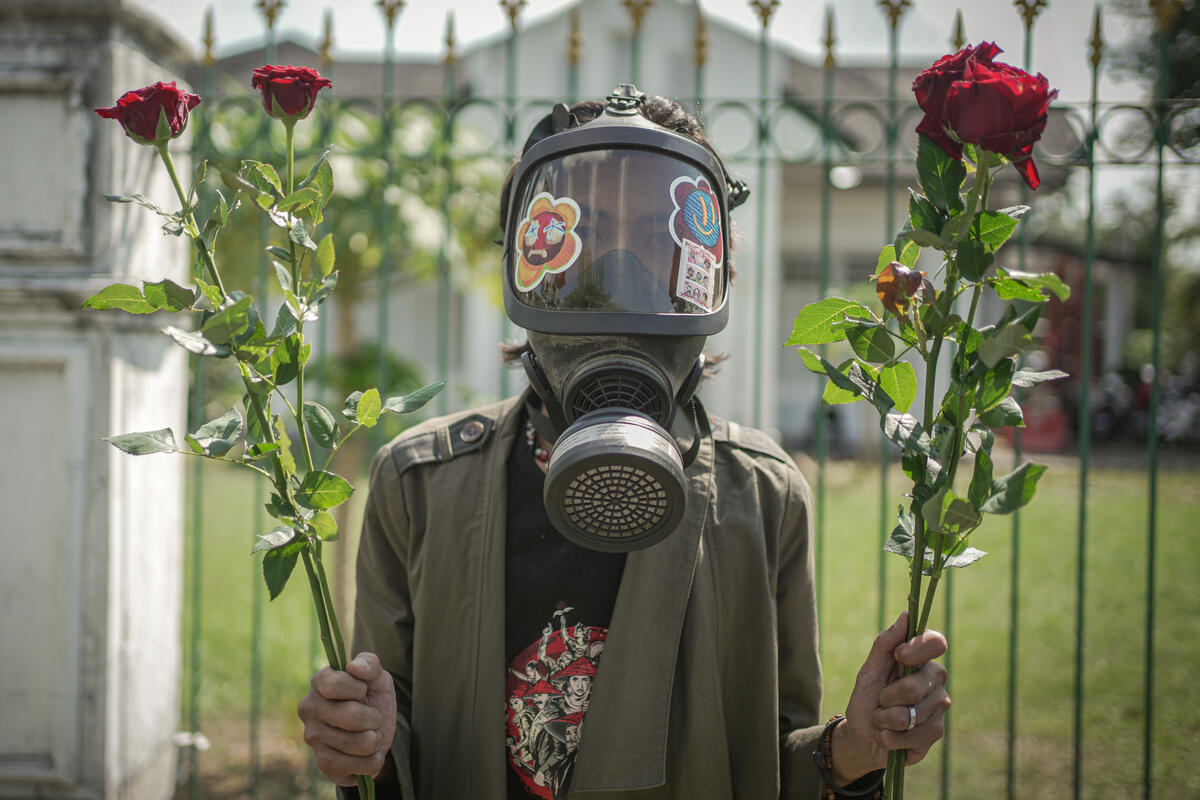-
China, Japan, and S. Korea see $205 billion renewable energy market in Southeast Asia
East Asian finance will be as important for renewable energy in Southeast Asia as it was for coal. Over the past two decades, we’ve seen East Asian banks skew the margins towards coal to keep the fossil fuel profitable despite ballooning financial risk. Over the next decade, we’ll see them apply the same ingenuity to…
-
Greenpeace Philippines reactive on Duterte’s call for stronger climate commitments at UN
Filipinos cannot afford to suffer more. President Duterte must use this opportunity to declare a Climate Emergency that will enable a recovery that will transform our economy and society to tackle the climate crisis and promote positive environmental and health outcomes. Doing so will help build resilience against future shocks, and ensure a society that…
-
A Reunion for the Ages
Fascinating, moving, and inspiring; this is the story of eight ordinary human beings who went beyond their limits to make a change for the better.
-
Burning Up: Health Impact of Indonesia’s Forest Fires and Implications for the Covid-19 Pandemic
As Indonesia braces for the 2020 forest fire season, a timely review of data of the effect on smoke-affected communities shows consecutive governments have been consistently and massively underestimating the impact on human health.
-
Joint Statement: Transforming the Fisheries Industry and Cross-Sectors through a Human Rights-Based Approach in the Asia Pacific Region
Today, Bangkok once again becomes the place where stakeholders discussed and reaffirmed their commitment to human rights. The 2025 UN Responsible Business and Human Rights Forum (7th UNRBHRF) convenes at a pivotal moment for Asia and the Pacific.
-
Asia Pulp and Paper Walks Back on its 2013 Commitment to No Deforestation
Asia Pulp and Paper Walks Back on its 2013 Commitment to No Deforestation
-
Greenpeace brings #SaveRajaAmpat to UNEA Forum, urges better governance for ‘energy transition’ minerals
In Fiji, Greenpeace Southeast Asia calls for global governance on minerals needed for energy transition
-
Still no Plastics Treaty: How the fossil fuel industry keeps polluting negotiations
It’s time for world leaders to confront the elephant in the UN Global Plastics Treaty negotiation room: Big Oil.
-
Indonesian Court Delivers Blow to South Sumatra Smoke Haze Victims and to Environmental Justice
In a deeply disappointing decision, the Palembang District Court in Sumatra has rejected a lawsuit filed by dozens of smoke haze victims.

